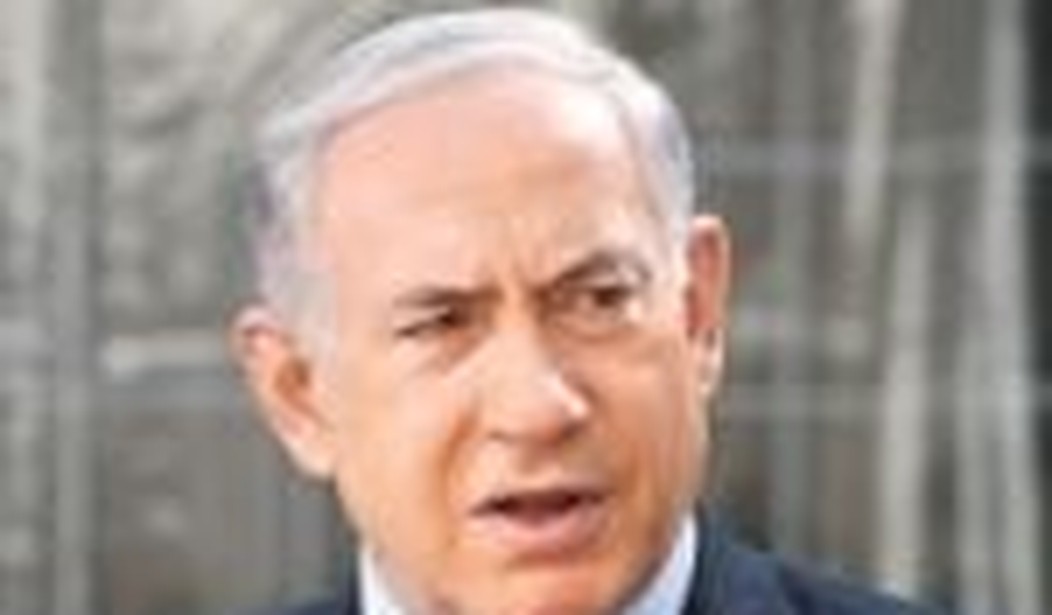A lackluster Israeli election campaign is drawing to a close. The final polls had Isaac Herzog’s Zionist Union party set to emerge as the single largest party, with Prime Minister Benjamin Netanyahu’s Likud finishing second. The polls put Herzog’s list at anywhere from 24-26 seats in the 120-member Knesset, with Likud a corresponding four seats behind in each poll.
Although the polls expect Likud to lose seats, they still appear ready to leave the right-wing bloc (i.e., the totality of right-wing parties including Likud and other rightist lists) as larger than the left-wing bloc (the totality of left-of-center lists) by a considerable margin.
In such a situation, it remains more likely that Israeli President Reuven Rivlin will ask Netanyahu to form a new coalition rather than Herzog receiving this invitation.
The president is also at liberty to request the two largest parties to set about trying to form a joint government of “national unity,” although this would depend on the acceptance of both party leaders of such an outcome.
Still, whatever the final results, the campaign has been characterized by a disappointing lack of real substance. Yet this absence of content derives from a certain consensus in the center of Israeli society regarding the key issues.
There is fatigue among the electorate in Israel. These are the second elections in just over two years. Much of the electorate found the reasons for the break-up of the coalition to be inexplicable and thus consider the current contest to be a waste of time and money. It is possible that the discernible impatience with Netanyahu also derives partially from this sense.
This weariness with the style and presence of Netanyahu, who has now been prime minister for a total of nearly nine years (1996-9, 2009-) has been a significant factor in much of the opposition’s campaigning.
This has contributed to a superficial campaign in which the alleged minor infractions of the rules by the prime minister’s wife, and petty disputes among his inner circle have taken disproportionate space.
The fact is that, beyond the issue of image, on the really key issues there is not a great deal of substance separating the opposition from the prime minister.
Herzog certainly has some characters further left on his Knesset list. But he himself and the people around him are centrists on the key issues who would be required by reality to behave not that differently than Netanyahu.
Herzog may be willing to envisage greater territorial concessions to the Palestinians, but it is plainly obvious that neither element among the Palestinian national movement — neither Fatah in the West Bank nor, of course, Hamas in Gaza — is at all interested in reaching a historic compromise with the Jews.
Hamas is committed to war with Israel and is currently busy re-arming and re-building its military infrastructure in the Gaza Strip. The West Bank Palestinian Authority, meanwhile, is engaged in a strategy of seeking pressure on Israel through international bodies, and has refused to return to the negotiating table.
On Iran, Herzog’s main associate from the security field, Brigadier General Amos Yadlin, is no less hawkish than Netanyahu. This means that Netanyahu’s poisonous personal relationship with President Obama notwithstanding, a Herzog-led Israel would soon find itself on a collision course with the administration’s Iran policy.
On the economy, in spite of the populist slogans of the opposition’s campaign regarding housing prices and the general high cost of living in Israel, again, Manuel Trajtenberg, Herzog’s candidate for the finance ministry, has been criticized by parties further left and by prominent members of Herzog’s own party for what they see as the insufficiently radical nature of his proposals for economic reform.
With regard to the challenge to Israel’s north, there is a possibility that Herzog might be less prepared to buck the will of the U.S. administration and engage in the kind of military action in recent years which has struck at weapons convoys heading for Lebanon. But closer to the border, there are no indications that the security team that would include Amos Yadlin would be any less determined to strike at the Iranians and their proxies (or ISIS, if it came close to the border) than would a government led by Netanyahu and Moshe Ya’alon.
Given all this, the probable result of a Herzog prime ministership would be a short period in which supporters of the administration and the Europeans would gaze with greater warmth and favor on Israel.
Then, at the first security challenge, when Herzog found himself having to respond along the same lines that rightist governments have, this improved atmosphere would rapidly dissipate. This is what happened in 1996, when Prime Minister Shimon Peres responded firmly to Hizballah aggression, and in 2008/9, when centrist Prime Minister Ehud Olmert launched Operation Cast Lead in Gaza against Hamas.
Past experience shows Israelis who think that by voting for the left they will at least soften the criticism emerging from the Europeans and the American left when Israel acts to defend itself tend to be rapidly disappointed.
These criticisms derive from a deep and ideological conception of the conflict, driven by factors which cannot for long be diverted by a softer tone in Jerusalem. The lackluster nature of the election campaign in Israel derives from the fact that there is largely a consensus in Jerusalem regarding the response on the key issues. Consensus is good from the point of the view of the national interest. But it leads to boring election campaigns.
These, as a Hebrew saying has it, should be our problems.









Join the conversation as a VIP Member